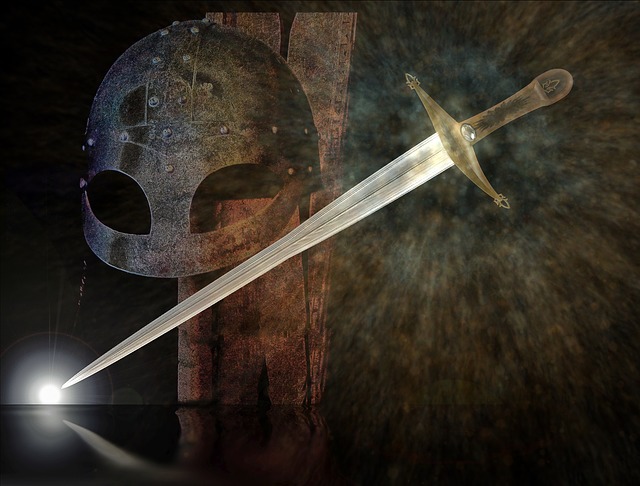17 The sacrifices of God are a broken spirit;
a broken and contrite heart, O God, you will not despise. – Psalm 51:17
A Broken Heart
Have you ever honestly asked yourself, “What does a broken heart look like?” I am not talking about the teenager who is in the dumps because the love of their life (however they define that) broke up with them after two weeks of dating. Nor am I talking about the widow who just buried the love of her life after sixty years of marriage as sad as that is. We will all experience difficulties. We will all bury loved ones. As much as these things will pain our hearts and make us grieve and leave us heart broken, they are not the same as being broken hearted. This type of grief is a natural emotional reaction to external circumstances. When we are heart broken, we often see ourselves as victims of circumstances. Not so the person with the broken heart.
Humbled
We live in an age of incredible pride. With our chests sticking out and our heads held high and our fists raised towards heaven we demand our rights. The world owes us and we are going to make sure we get what we have coming to us. It is not a matter of what we have earned, but instead it is a matter of entitlement. This is what I too often see. This is why I ask the question, “What does a broken heart look like?” We are so busy scanning the horizon to make sure we don’t miss out on what we want, that we don’t take the time to look deep within ourselves to recognize what we are missing. In this regard I am afraid that most of us are more like Lot than Abraham. When it came time for them to separate, in his pride, Lot lifted up his eyes and chose the land that appealed to him. Abraham, by contrast, in his humility had his eyes lifted up by God and God chose for him. Like Abraham’s, a broken and contrite heart is humble.
Repentant
When David penned the fifty-first Psalm, he was broken hearted. He had terribly sinned against God. He committed adultery with Bathsheba and then had her husband killed. If that wasn’t bad enough, he tried to cover up his sins. Never works. God used Nathan to call David out, and David was forced to confront his sin. He did not make excuses. He did not make denials. Nor did he blame anyone else. He admitted his guilt, and sought out forgiveness from God. Look at David’s plea. This is no insincere confession. These are the words of a man who is devastated. David is crushed by the weight of his sin. His sins are a stench to God and he knows it. A broken and contrite heart is greatly sobered by the guilt of sin and is repentant.
3 For I know my transgressions,
and my sin is ever before me.
4 Against you, you only, have I sinned
and done what is evil in your sight,
so that you may be justified in your words
and blameless in your judgment.
7 Purge me with hyssop, and I shall be clean;
wash me, and I shall be whiter than snow.
9 Hide your face from my sins,
and blot out all my iniquities.
10 Create in me a clean heart, O God,
and renew a right spirit within me.
Sacrifice
Along with a broken spirit, David says a broken and contrite heart is the sacrifice of God. Through David’s writing, God is contrasting the sacrifice He will delight in with one He will not.
16 For you will not delight in sacrifice, or I would give it;
you will not be pleased with a burnt offering.
I am sure as David penned these words his mind went back to his predecessor, King Saul. Saul had been instructed to completely wipe out the Amalekites but did not obey. Instead he spared King Agag and the best of the livestock. When confronted with his disobedience, Saul justified his actions by saying he wanted to save these spoils to sacrifice to God. God wasn’t impressed.
22 Samuel said,
“Has the Lord as much delight in burnt offerings and sacrifices
As in obeying the voice of the Lord?
Behold, to obey is better than sacrifice,
And to heed than the fat of rams.
23 “For rebellion is as the sin of divination,
And insubordination is as iniquity and idolatry.
Because you have rejected the word of the Lord,
He has also rejected you from being king.” – 1 Samuel 15:22-23
Obedient
God doesn’t want our sacrifice if He doesn’t have our heart. He doesn’t need our money. God doesn’t need our talents. He wants US and our obedience. He despised the sacrifice of Saul and his rationalizations. What God wants is our hearts, broken and contrite. A broken and contrite heart fears God and is obedient to His Word.
The world will never exalt the broken hearted, but God will. While the proud raise their fists heavenward demanding their rights, may we humbly confess our wrongs. While the proud vehemently fight for what they want, might we humbly thank God He doesn’t give us what we deserve. While the proud are making excuses for their behavior, might we confess our sins and ask for forgiveness. While the proud are selfishly scanning the horizon for more worldly possessions, might we have the wisdom to look inside ourselves and purge the world from our hearts.
Prepared
What does a broken heart look like? It is a heart that is prepared for the presence and power of God. It is the heart God looks for. It is the heart God favors. May he find such a heart in you and I!!
66 Thus says the Lord:
“Heaven is my throne,
and the earth is my footstool;
what is the house that you would build for me,
and what is the place of my rest?
2 All these things my hand has made,
and so all these things came to be,
declares the Lord.
But this is the one to whom I will look:
he who is humble and contrite in spirit
and trembles at my word. – Isaiah 66:1-2
15 For thus says the One who is high and lifted up,
who inhabits eternity, whose name is Holy:
“I dwell in the high and holy place,
and also with him who is of a contrite and lowly spirit,
to revive the spirit of the lowly,
and to revive the heart of the contrite. – Isaiah 57:15






